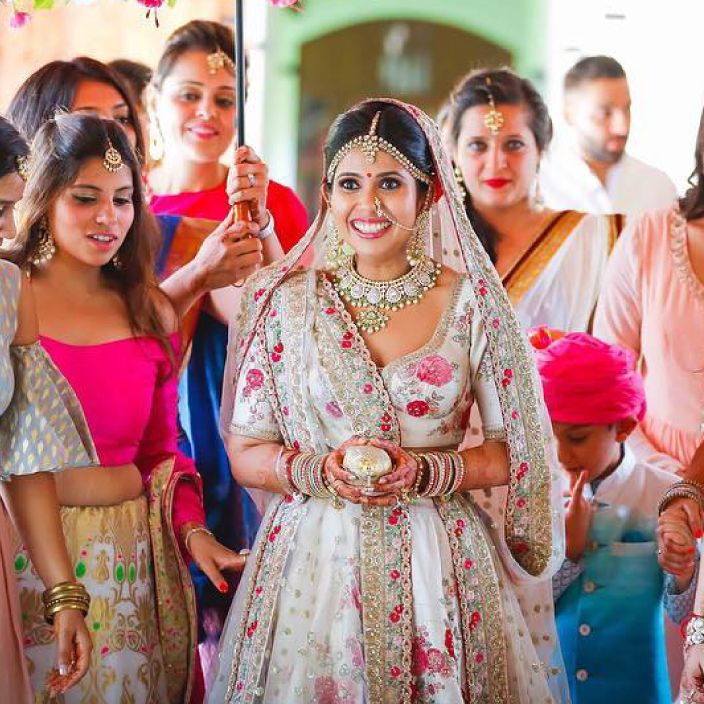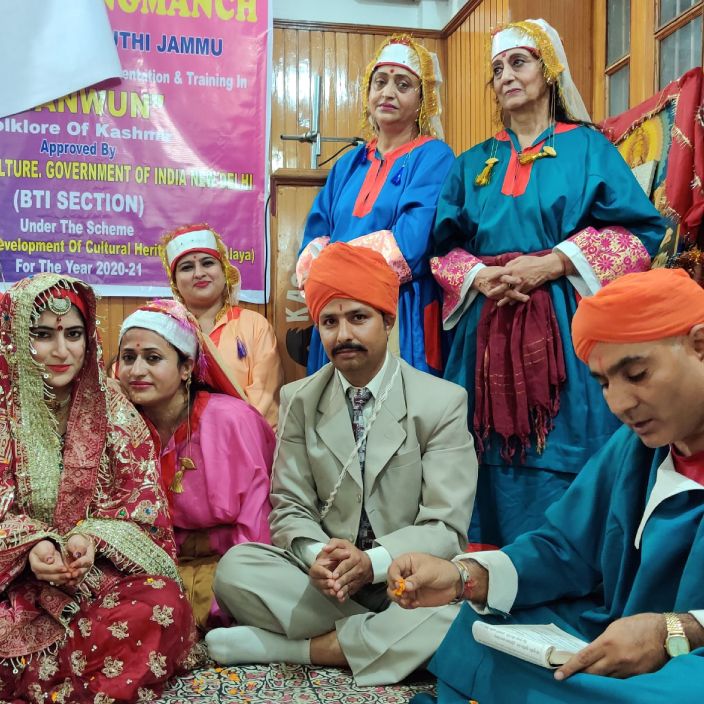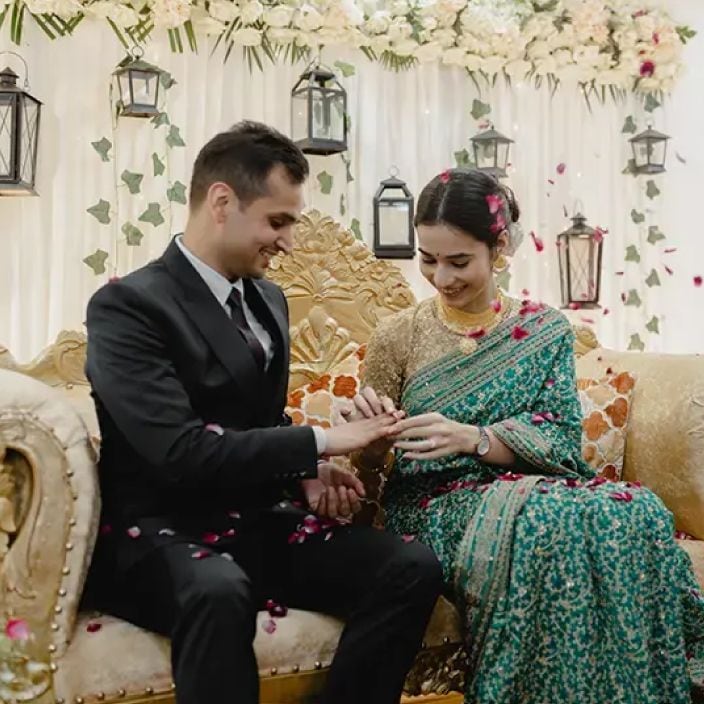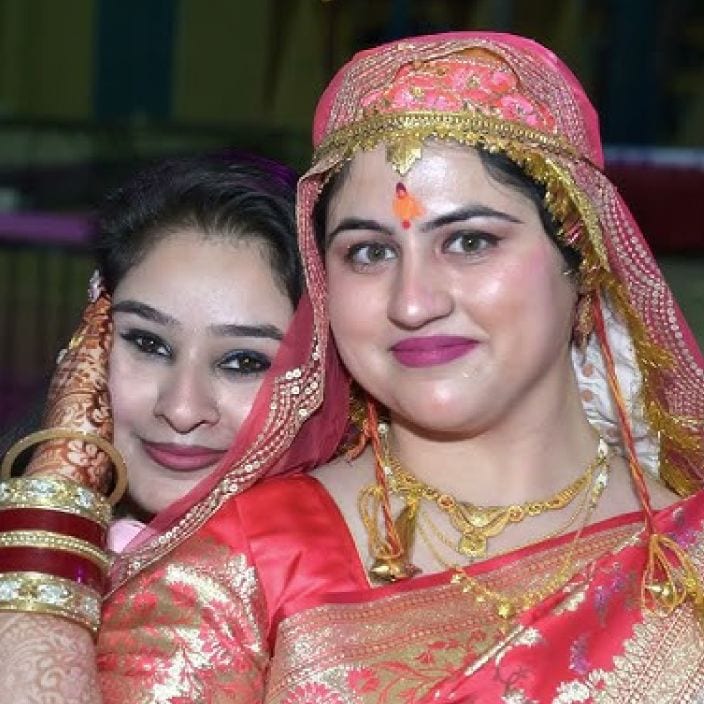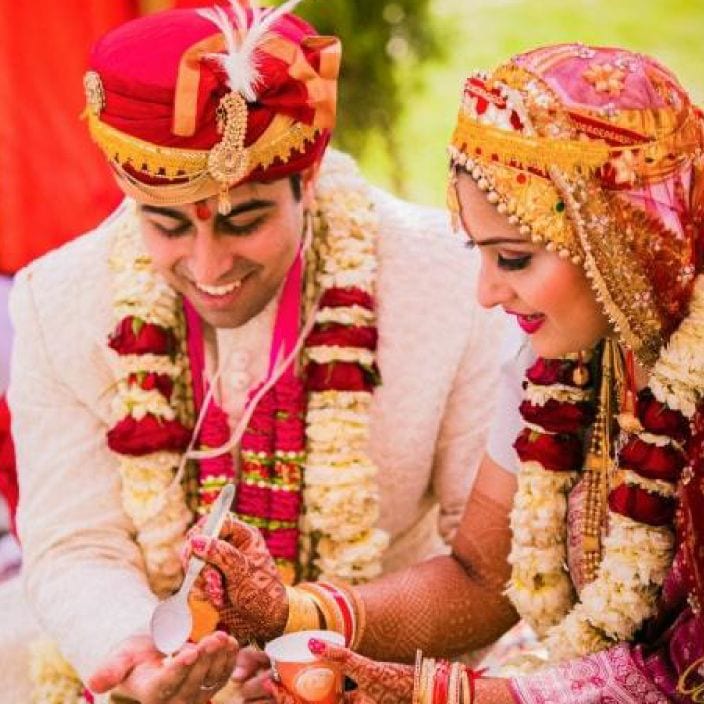For best prices and early deliveries, WhatsApp us at. 918488070070
Jammu & Kashmir
Set against the backdrop of picturesque landscapes, the wedding traditions in Jammu and Kashmir offer a fascinating blend of rituals. The customs that mark a Kashmiri wedding are steeped in history and differ across various regions of the state.
Tracing the Traditions
Celebrations often begin with Kasamdry, the engagement ceremony. This marks the formal announcement of the upcoming union between the two families. Before the actual wedding day, a lively pre-wedding reception called Wanvun is held. This is an opportunity for the bride and groom’s families to come together and celebrate through traditional songs, dances, and music.
Another one of the key rituals observed before the wedding day is the Devagon, a pooja held at the homes of both the bride and the groom. It serves as an important step in sanctifying the upcoming nuptials, with the family elders taking the lead in performing the religious rituals. Other pre-wedding customs include Maenziraat, a turmeric and music-filled ritual, and Krool Kharun, a decorative tradition preparing homes for the festivities.
The highlight of the wedding festivities is the Lagan, or the wedding ceremony itself. Performed according to traditional Hindu rituals, the Lagan is an event full of symbolic gestures that unite the couple. The Baraat involves the groom’s joyful procession with music and dance to the wedding venue.
Following the main ceremony, a post-wedding reception known as Ghar Atchum is held, traditionally at the groom’s house. This is a joyous occasion where the bride is formally welcomed into her new family. The reception is usually marked by dancing, music, and a feast of delectable Kashmiri dishes. It signifies the official integration of the bride into her new home, where the families come together once more to mark the beginning of this new chapter.
Wedding Attire
Kashmiri brides typically wear a beautifully embroidered Pheran, a traditional loose gown made of silk or brocade. The Pheran is often paired with an exquisite headpiece called the Tarang, which symbolises purity and the start of a new journey. Intricate gold and silver jewellery, often passed down through generations, complements the attire. The Dejhoor, a unique piece of jewellery worn by married Kashmiri women, is one such example of the region's distinct adornments. Another essential element of the bride’s attire is the headgear. Brides usually wear a veil or headscarf, which may be adorned with traditional Kashmiri embroidery known as sozni. Brides may also choose to wear Pashmina shawls, a Kashmiri symbol of opulence and warmth, to complement their attire.
For the groom, the traditional attire includes a long, embroidered kurta or Pheran, paired with a Turban. This is often accompanied by a Kangri, a small pot filled with burning coal used to stay warm in the chilly weather. The groom’s outfit is often finished off with elaborate jewellery, such as the Jigni, a brooch worn on the turban, signifying wealth and prosperity.
Traditional Cuisine
No Kashmir wedding is complete without a spread of mouthwatering dishes that pay homage to the region’s rich culinary heritage. The highlight of the wedding feast is the Wazwan, an elaborate multi-course meal that includes some of Kashmir's most beloved dishes. It is a unique culinary tradition, passed down from generations of Kashmiri Wazas (chefs).
A typical Wazwan meal includes Rogan Josh, which is tender lamb cooked in a rich yoghurt-based sauce infused with aromatic spices; Yakhni, a mild yoghurt-based mutton curry, perfect for balancing out the spicier dishes; Gushtaba, which is minced mutton balls in a creamy yoghurt gravy, a dish that requires skill and finesse to prepare; Tabak Maaz, consisting of fried lamb ribs, seasoned with traditional Kashmiri spices, and slow-cooked to perfection, and Nadur Yakhni, a vegetarian delight featuring lotus stem cooked in yoghurt and spices.
These dishes are traditionally served on large copper plates called tramis, shared by groups of four, symbolising togetherness and unity. Complementing the feast are beverages such as Noon Chai, a savory pink tea; Sheer Chai, a lightly spiced creamy tea; and Kashmiri Kahwa, a fragrant green tea brewed with saffron and almonds. The meal is a true reflection of Kashmir’s hospitality, offering a blend of hearty flavours that leave a lasting impression.
Cultural Decor
Floral arrangements made from marigolds, roses, and other seasonal flowers are a common sight, adding a vibrant touch to the setting. Many weddings also feature traditional Kashmiri handicrafts, such as papier-mâché decorations, which bring a touch of elegance and craftsmanship to the occasion.
Kashmiri weddings often incorporate elements of nature into their decor, reflecting the region's scenic beauty. From hanging garlands to intricately woven carpets and embroidered tapestries, every aspect of the decor is carefully curated to create a visual feast. Lighting, particularly in the form of diyas and candles, plays a significant role in creating a warm and inviting ambience during evening ceremonies.
